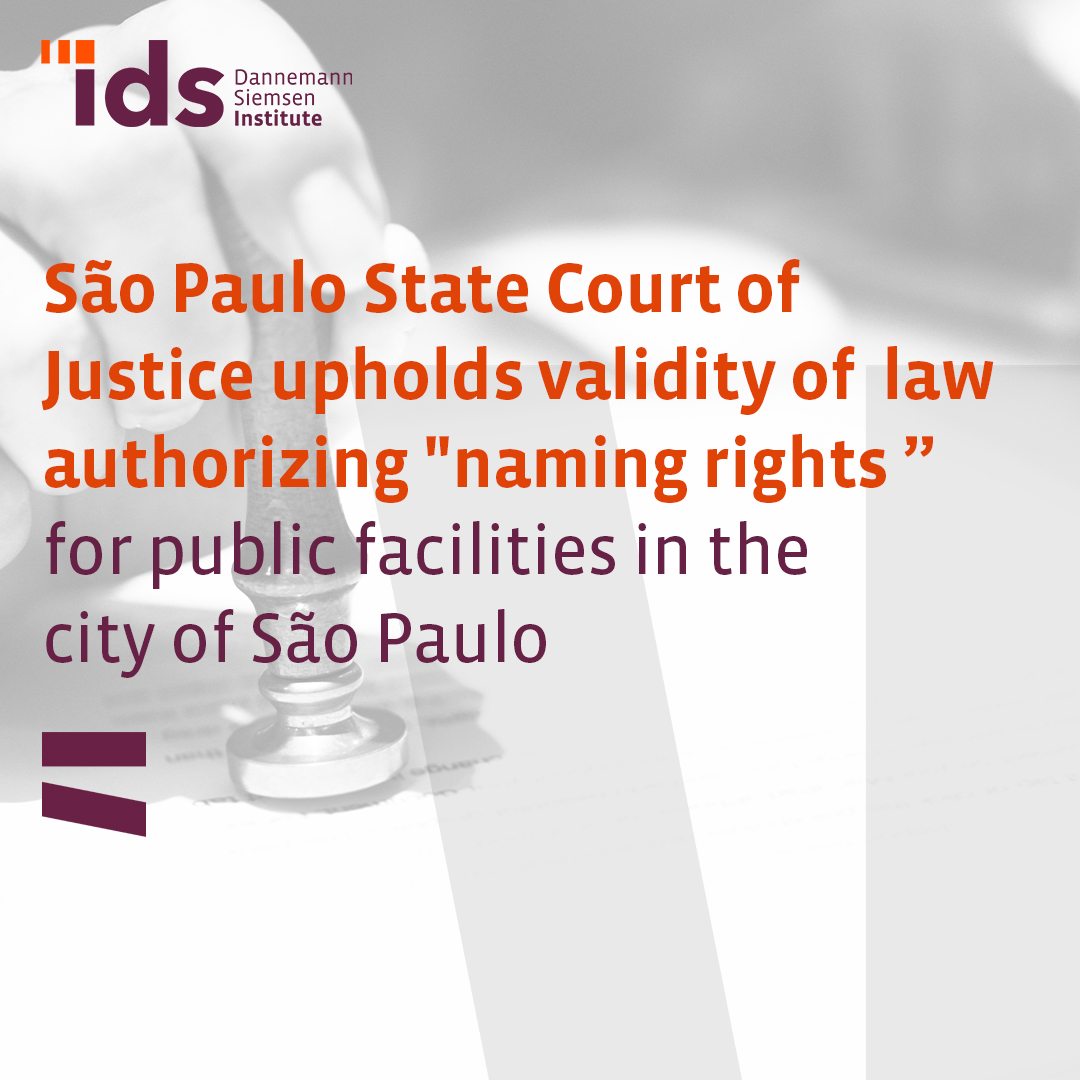25 de fevereiro de 2025
Share
São Paulo State Court of upholds validity of law authorizing “naming rights ” for public facilities in the city of São Paulo
In a decision handed down on February 5, 2025, the Special Chamber of the São Paulo State Court of Justice (TJSP) dismissed the Direct Action of Unconstitutionality (ADI) filed by the State Directory of the Socialism and Freedom Party (PSOL-SP) against Municipal Law No. 18.040/2023. The law authorizes the onerous assignment of the right to name municipal public facilities in the city of São Paulo, allowing private companies or entities to acquire the right to associate their names with public spaces, for a fee. This practice, which is also widespread in private spaces, with the granting of the right to name stadiums, concert halls, theaters, among others, is known as “naming rights”. The lawsuit was filed against the Mayor and the President of the São Paulo City Council, on the grounds that the rule violated constitutional principles such as impersonality, morality and purpose, as well as making public procurement rules more flexible.
In the first phase of the trial, PSOL-SP argued that the practice of naming rights constitutes a commercialization of public space, violating the constitutional principles of purpose, morality and impersonality, according to articles 37 of the Federal Constitution and 111 of the State Constitution. It also argued that this practice contravenes the ban on institutional advertising without an educational character, set out in article 37, paragraph 1, of the Federal Constitution, as it allows private brands to appropriate the identity of public assets for promotional purposes, without any educational value. Another point raised was the absence of a bidding process, which, according to the plaintiff, would compromise equality between competitors, since article 37, item XXI, of the Constitution requires bidding processes to avoid undue favoritism.
In light of these arguments, the TJSP granted an injunction suspending the effects of Law 18.040/2023. At the time, the judge in charge of the case ruled that the law did not establish political and legal criteria to regulate the exploitation of naming rights, including rules for possible competition between interested parties. Both the Mayor of São Paulo and the President of the City Council appealed the decision by means of appeals. The Mayor argued that the law generates economic and social benefits, providing revenue for the maintenance and improvement of public spaces. The City Council argued that the law respects the principles set out in articles 37 of the Federal Constitution and 111 of the State Constitution and that the practice makes economic gains possible, as well as contributing to improving the quality of the services offered to the population.
However, the TJSP dismissed the appeals, maintaining the suspension of the law until the final judgment of the lawsuit. The court justified its decision by claiming that the rule could generate irreversible financial impacts if contracts were signed under potentially unconstitutional legislation.
In its judgment on the merits, the Special Chamber of the TJSP concluded that the rule is not unconstitutional and that any irregularities should be analyzed on a case-by-case basis. The court pointed out that the practice already occurs in other spheres, such as in the granting of commercial names to subway stations and in the naming of classrooms at University of São Paulo’s Faculty of Law, which were renovated and named after former students and law firms, without this having harmed the public interest.
The Special Chamber refuted the three arguments put forward by PSOL and, firstly, dismissed the allegation of a violation of institutional advertising guidelines, as it understood that the naming refers to a specific case and does not promote the image of specific authorities or rulers.
Next, it rejected the accusation that the law did not require a public tender, since the transfer must follow the general rules of public procurement, and any irregularities in specific cases can be challenged in court.
Finally, the court dismissed the alleged violation of the principles of impersonality, morality and purpose, pointing out that “(…) there is no impact on ‘identity’ or ‘collective memory’, because the naming right consists only of adding a suffix, fully preserving the original name of the public facility”.
The ruling can be accessed via the link: Ruling 2347139-35.2023.8.26.0000
Note: For quick release, this English version is provided by automated translation without human review.
